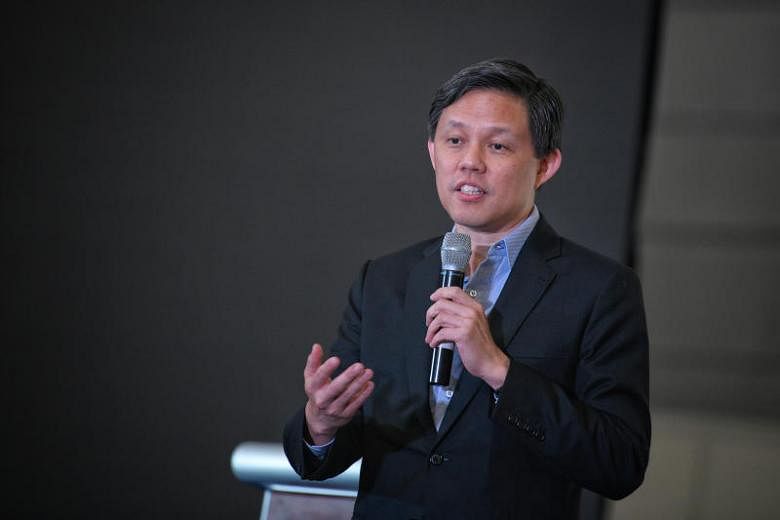SINGAPORE - If Singapore sows the seeds of language-learning in its young people, they will be able to pick up a language easily in future should their external environment demand it, said Trade and Industry Minister Chan Chun Sing on Saturday (June 1).
Recounting his experience in school at the opening of the 34th Singapore Book Fair in Capitol Singapore, Mr Chan said he had a schoolmate who used to brag about failing his Chinese examinations.
But today, this former schoolmate is working as a lawyer in Beijing, China, and carrying out his job functions in Chinese.
"I thought to myself, why could he, despite failing his Chinese examinations in high school, still work as a lawyer in Beijing?" asked Mr Chan during a panel discussion at the launch of the fair, organised by Singapore Press Holdings' Chinese Media Group.
"I realised this: If we sow the seeds for learning, in the future, if the conditions are right... we can pick up the language easily," he said. "Us Singaporeans are pragmatic as well. If the external environment demands it, we will pick it up quickly."
Asked by moderator Tan Leng Tuan, student publications editor at the Chinese Media Group, whether he was worried about the state of reading among Singaporeans and its youth, Mr Chan said that although he has some concerns, he is not overly worried.
He noted that each generation faces its own challenges, but the new generation has fresh avenues of accessing knowledge.
While buying and reading an expensive encyclopedia would bring one a wealth of knowledge in the past, for example, people do not need to do so today. Instead, they can go online to learn.
"The question is whether our younger generation will grasp these opportunities to enrich their minds," he said. "What I worry about is us having opportunities but not seizing them."
Highlighting current societal trends, Ms Lee Huay Leng, head of the Chinese Media Group, said people often skim the texts on social media rather than read them deeply.
"People spend a short amount of time reading today...We are in a knowledge economy, but the time we devote to acquiring this knowledge is actually quite small. This is a big problem," she added.
One thing that parents can do to foster a spirit of learning is not just encouraging their children to read, but also avoid berating them if they do not perform well, said Mr Chan, as this could cause the child to become disheartened. Other solutions include gamification, he added.
More help can also be given to those who have fewer resources, by tapping free online resources, said Mr Ng Teo Heng, vice-principal of Nan Chiau High School. Schools should understand what students are interested in learning, and stock their libraries accordingly as well.
Asked about the reading habits of young people like herself, Ngee Ann Polytechnic student Wan Zi Jing, 19, who was also on the panel, said she is on social media a lot and tends to read on digital platforms.
Apart from e-books and shorter stories, which are easier to read on a screen, she said she enjoys fan fiction as well, which inspires her creativity.


